An OCD cleaner is a person who has Obsessive Compulsive Disorder and finds comfort in repetitive and meticulous cleaning routines. OCD is a mental health condition where a person experiences intrusive thoughts, anxiety, and compulsive behaviors. Cleaning is one of the most common compulsive behaviors associated with OCD, and it can interfere with daily life and cause significant distress.
People with OCD who have cleaning compulsions often engage in repetitive and time-consuming cleaning rituals, such as repeatedly wiping surfaces, washing hands, or reorganizing items. This behavior is intended to reduce anxiety and discomfort, but it often has the opposite effect, leading to increased stress and exhaustion.
If you think you may have OCD, it is important to seek the help of a mental health professional, who can diagnose and treat your condition. With appropriate therapy and support, it is possible to manage and overcome OCD symptoms.
Understanding OCD and Cleaning
Obsessive Compulsive Disorder (OCD) is a mental health condition characterized by intrusive thoughts, anxieties, and compulsive behaviors. Cleaning and organizing can be a compulsive behavior for some individuals with OCD. People with OCD may feel driven to perform repetitive cleaning and organizing behaviors in an attempt to reduce their anxiety and distress.
In some cases, individuals with OCD may develop a subtype of the disorder known as Contamination OCD, which is characterized by an intense fear of germs, dirt, and other perceived contaminants. People with Contamination OCD may engage in repetitive cleaning and sanitizing behaviors to reduce their anxiety, but these behaviors can be time-consuming and interfere with daily life.
It is important to understand that OCD is a treatable condition and that with appropriate therapy and support, individuals with OCD can learn to manage and overcome their symptoms. Cognitive-Behavioral Therapy (CBT) and Exposure and Response Prevention (ERP) are forms of therapy that have been shown to be effective in treating OCD. Medications, such as Selective Serotonin Reuptake Inhibitors (SSRIs), may also be prescribed to help manage symptoms.
If you or someone you know is struggling with OCD and cleaning behaviors, it is important to seek the help of a mental health professional for a proper diagnosis and treatment. With the right support and treatment, individuals with OCD can recover and lead fulfilling lives.
What is OCD Cleaner?
“OCD cleaner” can refer to a person who has Obsessive Compulsive Disorder (OCD) and focuses their compulsive behaviors around cleaning and organizing. People with OCD often engage in repetitive behaviors in an attempt to reduce anxiety and distress, and some individuals may focus on cleaning and sanitizing as their compulsive behavior.
In some cases, people who have OCD may develop a subtype of the disorder known as Contamination OCD, which is characterized by an intense fear of germs, dirt, and other perceived contaminants. People with Contamination OCD may engage in repetitive cleaning and sanitizing behaviors to reduce their anxiety, but these behaviors can be time-consuming and interfere with daily life.
If you think you may have OCD, it is important to seek the help of a mental health professional for a proper diagnosis and treatment. With appropriate therapy and support, it is possible to manage and overcome OCD symptoms.
Is there a type of OCD that focuses on cleaning?
Yes, there is a type of OCD that focuses on cleaning, known as Contamination OCD. It is a subtype of OCD in which a person experiences intense fear of germs, dirt, or other perceived contaminants. This fear can drive them to engage in repetitive cleaning and sanitizing behaviors, which can be time-consuming and interfere with daily life. People with Contamination OCD may avoid touching certain objects or going certain places, and they may experience significant anxiety if they are unable to clean themselves or their environment.
It is important to note that OCD is a complex mental health condition, and everyone’s experience with it is unique. While Contamination OCD is a common subtype of OCD, other subtypes can focus on symmetry, order, and hoarding, among other things. If you suspect you may have OCD, it is important to seek the help of a mental health professional for a proper diagnosis and treatment.
Contamination and cleaning
Contamination and cleaning are central themes in a subtype of Obsessive Compulsive Disorder (OCD) called Contamination OCD. People with this subtype of OCD experience intense fear of germs, dirt, or other perceived contaminants and may engage in repetitive cleaning and sanitizing behaviors to reduce their anxiety. These behaviors can be time-consuming and interfere with daily life, causing significant distress and impacting personal relationships, work, and other aspects of daily life.
Contamination OCD is treatable with Cognitive-Behavioral Therapy (CBT) and Exposure and Response Prevention (ERP), which are forms of therapy that help individuals with OCD learn to manage and overcome their intrusive thoughts and compulsive behaviors. Medications, such as Selective Serotonin Reuptake Inhibitors (SSRIs), may also be prescribed to help manage symptoms.
If you are struggling with contamination and cleaning compulsions, it is important to seek the help of a mental health professional for a proper diagnosis and treatment. With the right support and treatment, people with Contamination OCD can recover and lead fulfilling lives.
What are the symptoms of OCD?
Obsessive Compulsive Disorder (OCD) is a mental health condition characterized by intrusive thoughts, anxieties, and compulsive behaviors. The symptoms of OCD can vary from person to person, but common symptoms include:
- Obsessions: Recurrent and persistent thoughts, images, or impulses that are intrusive and cause significant anxiety or distress. These thoughts are often about contamination, harm, or intrusive sexual or religious themes.
- Compulsions: Repetitive behaviors or mental acts that a person feels driven to perform in response to an obsession. Compulsions are performed with the goal of reducing the anxiety caused by the obsession, but they often have the opposite effect.
- Intrusive thoughts: Unwanted, intrusive thoughts or images that cause significant anxiety and distress.
- Rituals and routines: Engaging in repetitive behaviors, such as excessive hand washing or counting, that become a part of daily life and consume significant amounts of time.
- Avoidance behaviors: Avoiding certain situations, objects, or people due to fear of contamination or harm.
- Checking: Repetitively checking locks, appliances, or other objects to make sure they are safe or secure.
- Mental rituals: Mental rituals, such as repeating phrases or numbers, that are performed to reduce anxiety.
If you experience any of these symptoms, it is important to seek the help of a mental health professional for a proper diagnosis and treatment. With the right support and treatment, people with OCD can recover and lead fulfilling lives.
OCD Cleaner refers to individuals with Obsessive Compulsive Disorder (OCD) who have compulsive behaviors focused on cleaning and organizing. This can include repetitive cleaning and sanitizing behaviors as a way to reduce anxiety and distress. Contamination OCD is a subtype of OCD where individuals have an intense fear of germs, dirt, and other perceived contaminants, leading to repetitive cleaning behaviors. OCD is treatable through Cognitive-Behavioral Therapy (CBT) and Exposure and Response Prevention (ERP) as well as medication. It is important to seek the help of a mental health professional for proper diagnosis and treatment to manage and overcome OCD symptoms.






